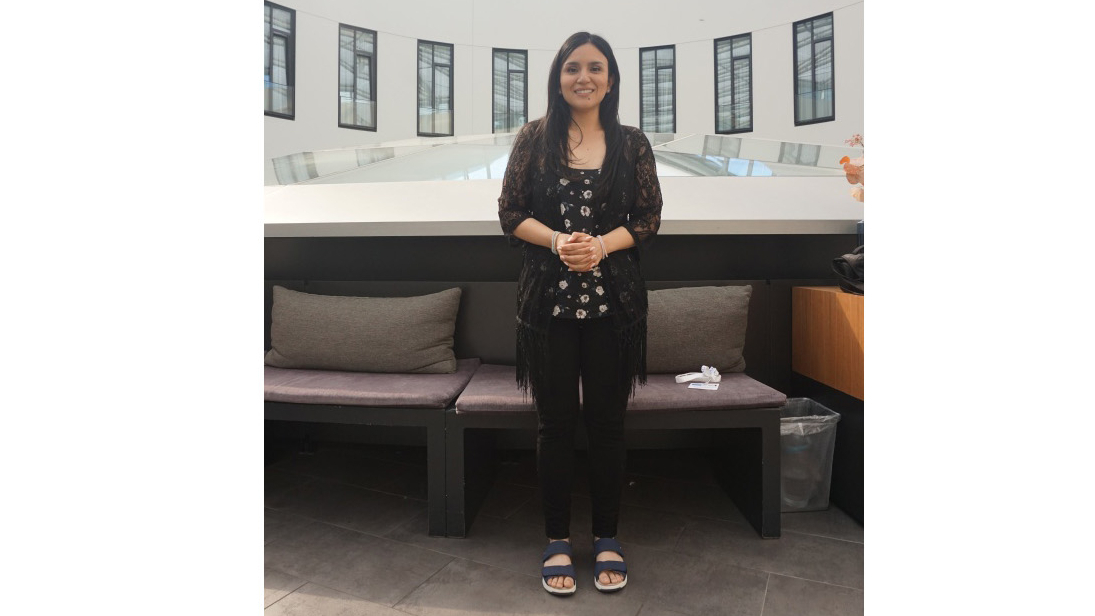Maria Del Carmen Stich, DGO Young Talent Award Winner 2023 and postdoc at TU Ilmenau, Interview: Robert Piterek
Congratulations on your award, can you briefly outline the scientific innovation for which you received it?
The idea of this work was to produce hydrogen as a green fuel. To do this, I produced a material that serves as a catalyst and accelerates the reaction. I produced the material and characterized its physical, optical and electrical state. Then I used the material electrochemically in a photoelectrochemical cell to see how well the material can absorb sunlight. In our lab, we have a solar simulator, and I exposed the material to the solar simulator to absorb the light and split water, which worked successfully. I then recorded the current flow as the sunlight was absorbed by the material.
Hydrogen production only works on a very small scale of a few milliamperes per square centimeter. Can your process be scaled up?
Yes, there are some studies on pilot plants for photoelectrochemical water splitting, but that's the technical part. I am a chemist. I originally did research on the same topic in the Physics Department of the Materials Science Faculty at the Pontifical Catholic University of Peru in Lima. I later presented my work to Prof. Bund here in Germany. So my research was ready for application, as it had already been physically characterized on a small scale. However, the investigations into upscaling are only just beginning and are being carried out at an engineering level.
So you provided the scientific background for the process?
Exactly, we have tried to understand as well as possible the scientific principles of what happens at the interface between semiconductors and electric light.
How long have you been in Germany?
This is the third year I've been in Germany continuously. I have come to Germany three times on three different scholarships. The scholarship from my university in Peru lasted one month, the second time I came to Germany with a scholarship from the KAAD (Catholic Academic Exchange Service), then returned and continued my doctorate. And the third time I came here on a three-month scholarship from the DAAD (German Academic Exchange Service). But I couldn't return to Peru because of corona. Then I got a postdoc position here and got married.
"Be proactive and recognize your opportunities!"
What is your personal outlook for the future?
I have changed topics and am now working more in the field of electroplating, more specifically the electrodeposition of aluminum for various applications. I started with a project on the electrodeposition of aluminum with nickel particles and then switched to a project on the electrodeposition of aluminum for battery applications. I think I will continue in this area, but if I get the opportunity to further explore photoelectrochemical water splitting, I would do that because I like the topic. My current work is also very interesting: I am now learning more about electrochemistry and electroplating.
As a DGO Young Talent Award winner, can you give any advice to young people who want to develop their careers in science?
It depends on the opportunities you have and the search for opportunities. In my country, people are often not aware of the opportunities available to them. There are scholarships and other forms of support. Be proactive and look for opportunities. Discipline and motivation are also important.
INFO
Maria del Carmen Stich studied chemistry in Peru and completed her Master's degree in materials science there. When the now 33-year-old began her doctorate on photoelectric water splitting, the subject was still unknown in her country. She met professors from TU Ilmenau who were traveling the country at the time and was given the opportunity to apply for a scholarship in Germany. She is currently a postdoctoral researcher in the Department of Electrochemistry and Electroplating under Professor Bund at TU Ilmenau.


